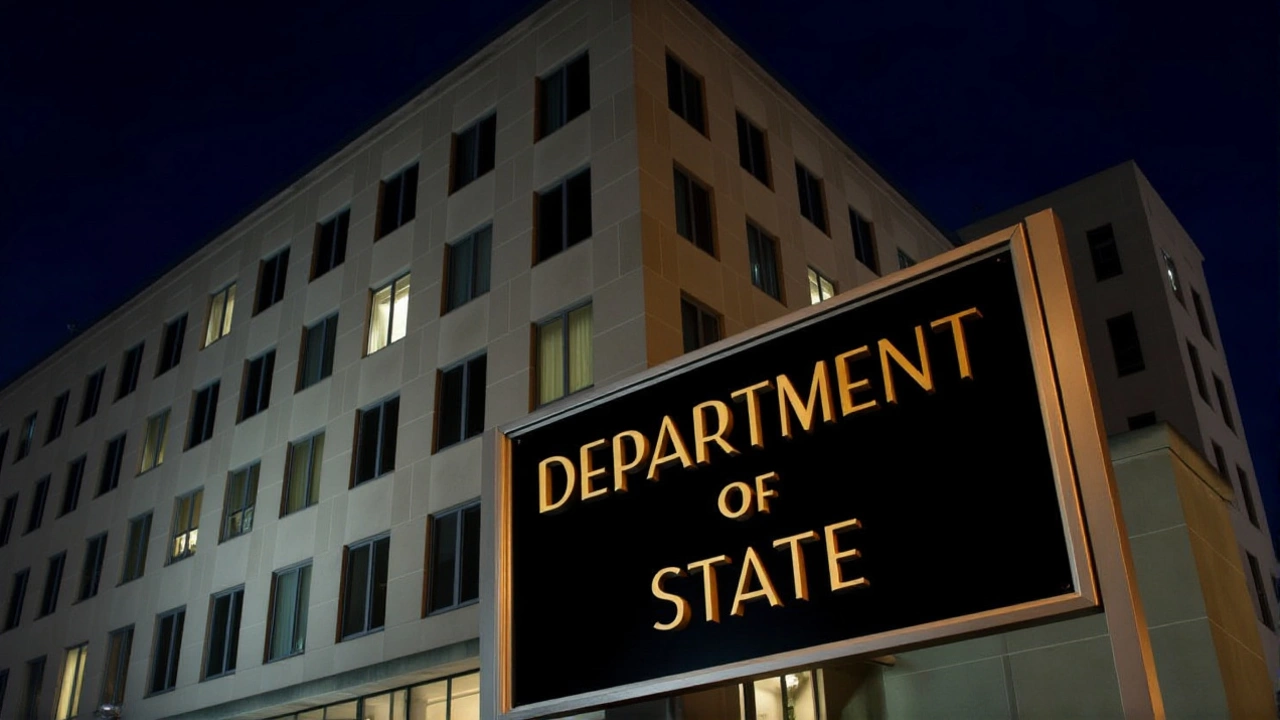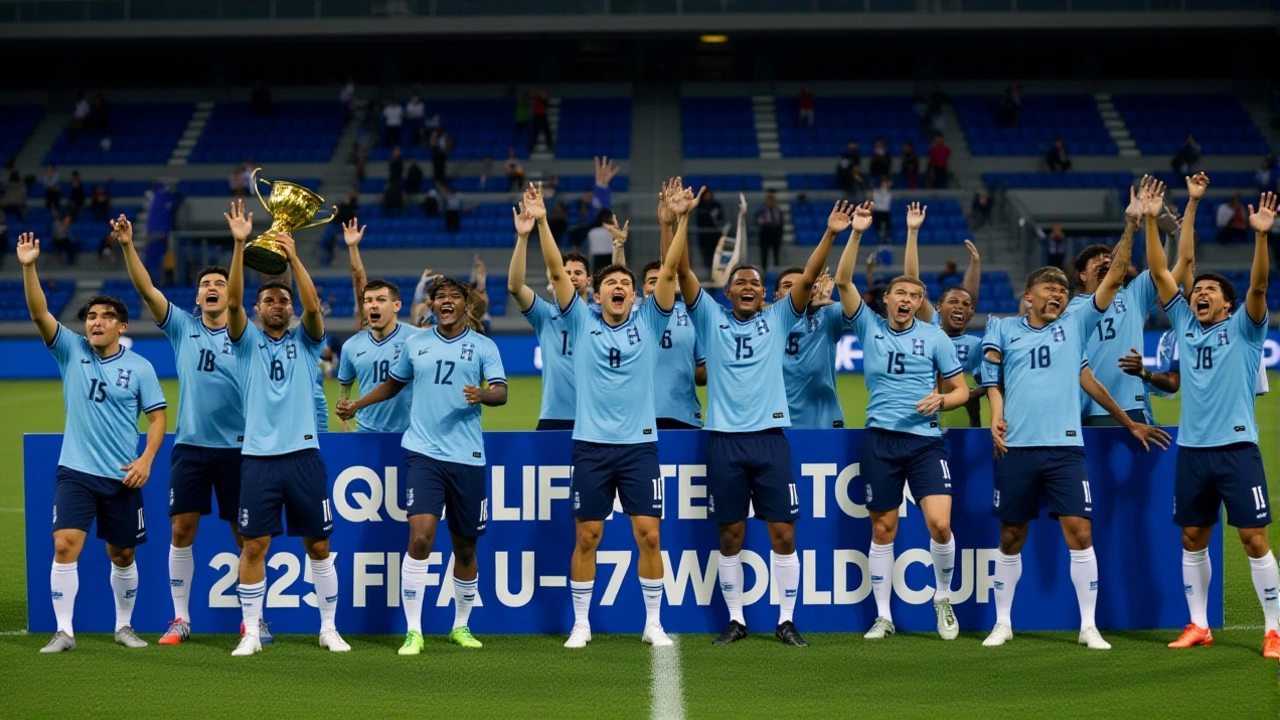US recalls ambassadors from three Latin American nations after they switch ties from Taiwan to China
 Nov, 20 2025
Nov, 20 2025
The United States recalled its top diplomats from the Dominican Republic, El Salvador, and Panama in November 2018 — a rare, synchronized move signaling deep alarm over Beijing’s growing diplomatic influence in Latin America. The decision, made under Mike Pompeo, then Secretary of State of the U.S. State Department, came three months after El Salvador cut ties with Taiwan and recognized the People's Republic of China. It wasn’t just a protest. It was a message: Washington would no longer watch quietly as Beijing chips away at Taiwan’s global footprint.
Why This Wasn’t Just Business as Usual
Diplomatic recalls aren’t common. They’re reserved for moments when a country’s actions are seen as fundamentally hostile — like espionage, war, or, in this case, the erosion of a long-standing strategic ally. The U.S. ambassadors to Santo Domingo, San Salvador, and Panama City were summoned back to Washington, D.C. within 72 hours. Not for vacation. Not for training. For consultations. The kind that happen when the White House and State Department realize they’ve been outmaneuvered.What made this different? For the first time since the Taiwan Relations Act was signed in 1979, the U.S. recalled ambassadors from three countries simultaneously over Taiwan policy. The last comparable move? The 1980s, when the Soviet Union was still a global rival. Now, the rival is China — and it’s playing a long game.
The Domino Effect: Taiwan’s Losing Streak
Since Tsai Ing-wen took office as president of Taiwan in May 2016, the island has lost 10 diplomatic allies. Three of those — Panama (June 13, 2017), Dominican Republic (April 30, 2018), and El Salvador (August 21, 2018) — were among its last reliable partners in Latin America. Each switch followed the same script: Beijing offered infrastructure loans, trade deals, or political recognition in exchange for severing ties with Taipei. The numbers don’t lie: China’s Belt and Road Initiative poured billions into these nations, while Taiwan’s aid budgets couldn’t compete.For decades, Taiwan held diplomatic relations with Panama since 1912, El Salvador since 1941, and the Dominican Republic since 1941. Now? All three recognize Beijing. And with them, went voting blocs in international organizations, access to development funds, and symbolic legitimacy.

Washington’s Calculated Response
The recall wasn’t random. It was choreographed. The U.S. State Department’s Bureau of Western Hemisphere Affairs, led at the time by Assistant Secretary Kimberly Breier, coordinated the move from the Harry S Truman Building in Washington. The ambassadors — each holding the title Ambassador Extraordinary and Plenipotentiary — were pulled back for mandatory consultations, a diplomatic tool codified under Section 4(b) of the U.S. Foreign Service Act of 1980. It’s not punishment. It’s signal. It says: We’re rethinking everything.Historically, such consultations last 30 to 90 days. The envoys returned to their posts after that window, but the message lingered. Beijing didn’t flinch. In fact, it doubled down. Within months, it established new trade offices in former Taiwan allies. Meanwhile, the U.S. quietly increased its own engagement — sending senior officials to remaining Taiwan allies like Guatemala and Honduras, and boosting military cooperation with the island.
What This Means for the Region
Latin America is no longer a passive player in the U.S.-China rivalry. These three countries didn’t just switch flags — they chose sides. And for Washington, that’s a strategic nightmare. Panama controls the canal. El Salvador and the Dominican Republic sit along key maritime routes. Losing their diplomatic alignment weakens U.S. leverage in the hemisphere. It also emboldens other nations to follow suit.Here’s the twist: the U.S. didn’t retaliate with sanctions. It didn’t cut aid. It didn’t threaten. It recalled ambassadors. Why? Because it knew overt confrontation would play into China’s narrative — that the U.S. is a bully, while China is the quiet, generous partner. So instead, Washington made a quiet, dignified protest. It showed it still cared. And it warned others: switching sides has consequences.

What Comes Next?
The U.S. has since expanded its unofficial presence in Taiwan — increasing high-level visits, expanding defense cooperation, and quietly encouraging allies to maintain ties with Taipei even if they don’t formally recognize it. But the damage is done. As of 2024, Taiwan holds only 12 diplomatic allies — down from 32 in 2016. China’s strategy isn’t just working. It’s winning.Next up? Countries like Paraguay and Belize are under intense pressure. If they fall, Taiwan’s diplomatic presence in the Americas could vanish entirely. The U.S. knows this. And it’s preparing for a new kind of diplomacy — one that doesn’t rely on formal recognition, but on economic partnerships, cybersecurity cooperation, and people-to-people ties. The old game is over. The new one has just begun.
Frequently Asked Questions
Why did the U.S. recall ambassadors instead of imposing sanctions?
Sanctions risk alienating the affected countries and could push them further into China’s orbit. The U.S. chose a diplomatic recall — a symbolic but non-confrontational tool — to signal disapproval without escalating tensions. It allowed Washington to show resolve while leaving room for future dialogue. This approach has been used historically to protest actions like coups or human rights abuses, without triggering full diplomatic rupture.
How did China convince these countries to switch recognition?
China offered large-scale infrastructure investments under its Belt and Road Initiative — including ports, highways, and hospitals — often with favorable loan terms. For nations with limited budgets, like El Salvador and the Dominican Republic, these deals were hard to refuse. Beijing also promised greater access to its $15 trillion economy, while Taiwan’s aid was smaller and less tied to large projects. The lure of immediate economic gain outweighed long-standing diplomatic ties.
What impact does losing diplomatic allies have on Taiwan?
Losing allies weakens Taiwan’s voice in international bodies like the WHO and ICAO, where recognition is often required for participation. It also reduces its access to foreign aid, trade partnerships, and political support. With only 12 allies left as of 2024, Taiwan’s global isolation grows — not because of its lack of legitimacy, but because of China’s financial and diplomatic pressure on smaller nations.
Is the U.S. still committed to Taiwan’s security?
Yes — but indirectly. The U.S. doesn’t formally recognize Taiwan, but it remains its largest arms supplier under the Taiwan Relations Act. In recent years, it has increased high-level visits, expanded defense cooperation, and supported Taiwan’s participation in global forums. The ambassador recalls were about diplomacy, not security. Military support, including arms sales and joint exercises, continues to grow despite China’s protests.
What’s the long-term goal of China’s diplomatic campaign against Taiwan?
China aims to isolate Taiwan internationally and reinforce its claim that Taiwan is an inseparable part of China. By reducing Taiwan’s diplomatic allies, Beijing weakens its global standing and pressures other nations to adopt the "One China Principle". The goal isn’t just to win allies — it’s to erase Taiwan’s identity as a sovereign entity in the eyes of the world.
Could other Latin American countries follow suit?
Absolutely. Paraguay, Belize, and Guatemala are among Taiwan’s last allies in the region. China has already increased economic pressure on them, offering infrastructure deals and trade incentives. The U.S. is actively lobbying to prevent further switches, but with China’s financial muscle and Taiwan’s shrinking resources, the odds are tilting. A loss of even one more ally would be a major blow to Taiwan’s international legitimacy.